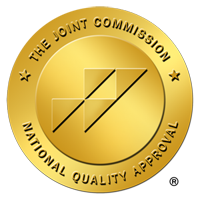If you have recently completed an inpatient program or an outpatient program, or you are considering starting treatment at a detox center for addiction, one of the things you’ll learn is how to set goals for long-term recovery.
Goal setting is an important part of every aspect of your treatment plan and your subsequent recovery. When you start things like individual and group therapy, you’ll go over personal goals that you can set, but why does it matter whether or not you have goals, and how do you set them correctly?
Why Set Goals for Long-Term Recovery
Studies indicate that when you set goals for long-term recovery, you are more likely to make progress. Without goals, you won’t have the direction you need to move forward in life or to reflect on the achievements you have already made and use them as inspiration for something better.
Goals help you make changes incrementally. Consider this:
John is struggling with depression and alcoholism. During his twenty-year career in the military, he never sought help for depression or sleep issues because of his high-stress job and his deployments. Instead, he turned to alcoholism, which was the only legal drug he could take without getting into trouble.
Now that he is out, he is drinking more and more and needs help. But John isn’t going to quit drinking overnight. A single 30-day inpatient program won’t be a magical fix for John. Instead, John needs to set small goals for things like:
- Daily achievements
- Weekly achievements
- Monthly achievements
- Quarterly achievements
Like John, setting small, achievable goals with distinct milestones or timelines is more likely to build progress compared to if John just said, “I want to be sober in six months,” without any other, smaller goals to support that.
How to Set Goals for Long-Term Recovery
Given the importance of goals, it is equally important to know how to set them. Most people rely on the following acronym as a starting point:
S = Specific
M = Measurable
A = Achievable
R = Relevant
T = Time-bound
This is a metric to be applied to all goals so that you can determine if they are feasible.
Long-term goals should still meet these metrics, but their final metric, “time-bound,” is longer than a day or week.
Let’s look at some examples using John above.
If John were to say, “I want to be sober in 6 months,” that is not a very specific goal. It is measurable because it can be measured by his sobriety, and it is achievable, except for the fact that sobriety is a lifelong journey. It is certainly relevant to his recovery and time-bound (the six-month mark), but it could be better.
If John were, instead, to say, “I want to go to at least one support group meeting or therapy session once per week for the next six months,” that would be better. It is not only relevant because it contributes to his long-term recovery and time-bound because it is still set by that six-month mark, but it is something that is more achievable and relevant.
It is more relevant because it has the specificity of offering weekly support and the potential to learn new coping skills that would better serve John in maintaining his sobriety when things get difficult.
Setting Goals in Recovery
Like John, if you start your inpatient program, you will have access to a team of professionals who help you better understand the need to set long-term goals and to use acronyms like those above to make sure that the goals you set are relevant and achievable.
The therapists and other medical professionals with whom you work will help you set your initial goals and, from there, give you the tools to continue to set and achieve long-term goals after therapy.
Setting Goals with American Detox and Treatment Center
An hour 24 bed facility we provide treatment to underserved areas and communities throughout South Carolina with access to full-time therapists and psychiatric nurse practitioners and a good staff to patient ratio. We have separate treatment pathways for First Responders and military veterans, with programs that specialize in trauma-informed care for these individuals as well as other treatment plans for the general population.
No matter which program you choose, our 7-day Detox and 30-day inpatient program will set you up for long-term success by helping you better understand goal setting, set the right goals, and learn how to prepare yourself for long-term success.
Our team is here to help you with your sobriety. Call us today to learn more.


